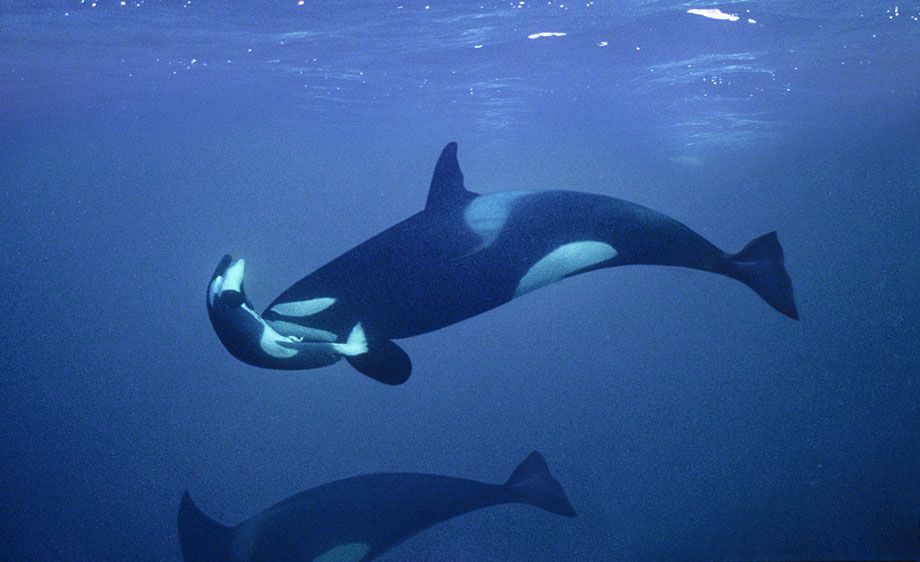Heartbreaking as the images of Tahlequah, the orca, carrying her dead baby calf for the 17th day off the coast of Washington and British Columbia are, there’s a profound lesson to be learned by environmentalists and the cleantech community about the transcendent power of stories to further a cause and a business.
There is a universal agreement across societies that there is nothing more harrowing for an adult than to lose a child. If you ask any parent of any race, religion or nation they would tell you in their native language it’s inconsolable grief which never goes away. That’s why news outlets across the globe have been covering Tahlequah’s journey. It’s a powerful image which opens hearts. It also serves as a compelling reminder of the variety of ways climate change is impacting the planet.
Too often, brilliant people trying to combat climate change through activism or scientific discovery forget this elementary lesson about the power of story to change hearts and minds. Many of these well-intentioned, big-hearted people are bathed from an early age in the scientific method and Aristotlean logic to solve humanity’s problems, and rest assured we wouldn’t have found cures for polio and a hundred other diseases without them. Unfortunately, the answers achieved through the scientific method appeal to the wrong parts of the human brain to work well outside of the classroom.
There’s nothing revolutionary in that statement. Ironically, plenty of neuroscientists have spent decades using the scientific method in labs across the world to deduce facts and figures are lousy tools of persuasion, which is good because it keeps storytellers like me employed.
Stories are archetypal. The Bible is full of lessons; the Greeks had their tragedies, and; Aesop had his fables. History is about stories. Sure, we were all taught Columbus landed in the Americas in 1492, but other than Columbus Day, that’s a mostly irrelevant point compared to how it shaped the narratives of Native Americans for the subsequent 500 years. A fact is an isolated, two-dimensional point in the universe, necessary for sure, but people don’t view facts with awe, wonder or fear. That’s one of the main reasons climate change advocacy has been such a slog. (That and millions of dollars spent in diversionary tactics by the fossil fuel industry.)
The same goes for cleantech companies. You know who’s having a terrible week? The ocean energy industry. Technology challenges aside, the mere remote possibility of an offshore turbine disturbing poor Tahlequah in her time of misery could quickly turn into a Three Mile Island-like wet blanket for the industry. Speaking of Three Mile Island, few remember the facts of what transpired to cause the meltdown, but just the name and the visual of nuclear cooling towers is enough to strike fear into the hearts of millions. Either of these industries could (and probably will) try to make a safety counterpoint with facts, all of which will fall on deaf ears, no matter how accurate they might be.
If the fate of combatting climate change were decided at a poker game, using facts and figures would be the equivalent of holding a pair of threes; meanwhile, the best story holds a full house. Now it’s possible the player using facts will pull two more 3’s to win the game after tossing away their garbage cards, but the likelihood of that happening is the equivalent of The Bad News Bears beating the Boston Red Sox.
Stories move us. When it comes to the private sector, the modern-day marketing philosopher, Simon Sinek, says it best. “People don’t buy what you do; they buy why you do it.” A cleantech company with great early-stage research results is just a science project to investors unless you can make common cause with their values. The same goes for gaining exposure. Lab results don’t excite journalists as a rule. It’s the story behind the results that interest them.
By no means am I suggesting facts have no place in the discourse, but in and of themselves they will never be the star of the show. They are ancillary.
Unfortunately, Tahlequah’s story isn’t going to have a happy ending, but we can all hope it becomes the backstory of an invention to help orcas with their annual migrations or a campaign to reduce the acidity of our oceans so future generations of these beautiful creatures can forage for the food they need to survive. I can’t say for sure whether that progress happens quickly enough, but I can say it will have to connect with hearts before it wins minds.

